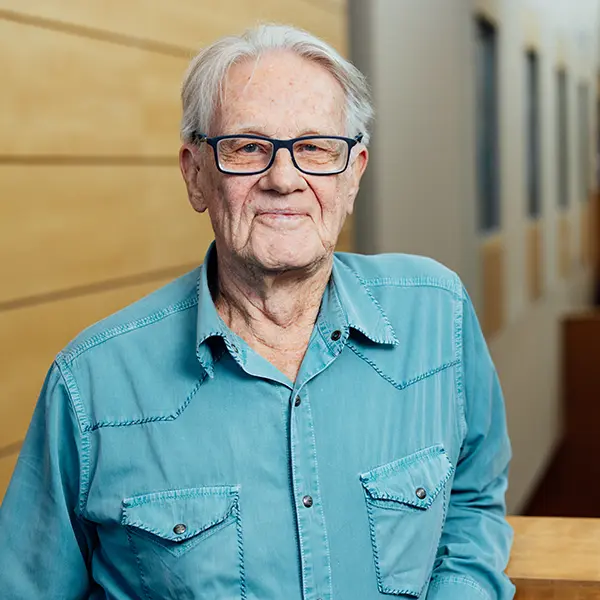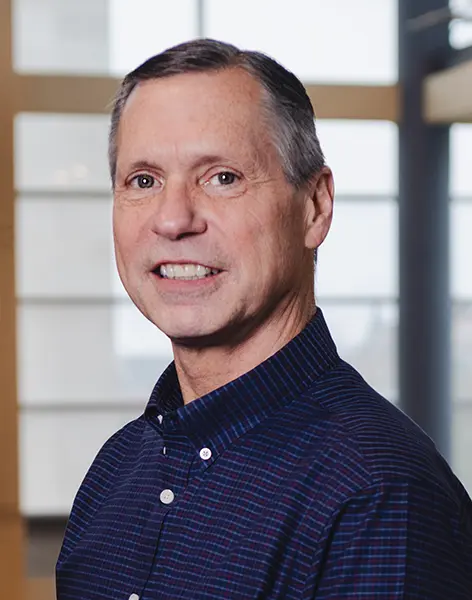
The Daniels School of Business’ new Center for Behavioral Economics, Experiments and Public Policy (BEEP) recently hosted Nobel Laureate and former Purdue faculty member Vernon Smith at the center’s first workshop, which was aimed at PhD students, postdocs, and early career researchers.
The center makes fundamental research contributions in the emerging field of behavioral economics, combining theoretical insights with data from controlled experiments to better understand human decision making. This basic scientific research provides solid empirical foundations to address important public policy and management questions.
The Learning, Computational and Bayesian Methods in Experimental Economics workshop was held May 2-3, 2024, on Purdue’s West Lafayette campus. There was no fee to attend the workshop, thanks to generous funding from the Vernon L. Smith Experimental Economics Education Fund. Attendees received grants sufficient to cover their travel, lodging and meal expenses.

The workshop provided an introduction to methods in computational and learning models and structural Bayesian econometric techniques to the field of experimental and behavioral economics. It targeted researchers who wish to develop greater methodological expertise for experimental design and the investigation of human exchange systems.
The opening day included a mentoring lunch that covered demystifying the publication process and early career strategies, followed by student presentations and discussions of their own research projects. The event also featured two half-day “mini-courses” led by professors Yaroslav Rosokha and James Bland.
“Behavioral economics is interdisciplinary, combining insights and methodology from economics, psychology, neuroscience, and related fields,” says BEEP director Tim Cason, Distinguished Professor of Economics and Gadomski Chair of Economics. “Through this workshop, we are fusing theory and data to better understand decision making.”
The workshop was followed by a conference and celebration of the grand reopening of the business school’s newly renovated Vernon Smith Experimental Economics Laboratory (VSEEL), which is housed in the Center for Behavioral Economics, Experiments and Public Policy.
Smith received the 2002 Nobel Prize in Economics for establishing laboratory experiments as a tool in empirical economic analysis through work he began at Purdue from 1955 to 1967. His research led directly to the innovative new field of behavioral economics — the mixture of psychology and economics.
Shortly after beginning his tenure at Purdue, Smith borrowed techniques from lab experiments in psychology to create the first “classroom” markets. These experiments involved Smith designating half of his class as buyers and half as sellers of fictitious goods. During the experiments, he gave the student buyers and sellers different ranges of prices and instructed them to negotiate trades until the goods' price and quantity achieved equilibrium, or in economic terms “made a market.”

Following this founding tradition, the university is now home to one of the largest and most productive groups of experimental and behavioral economists in the world, especially distinguished by experimental work inspired directly by economic theory.
His work as an economics professor at Purdue remains a vivid memory. “My 12 years at Purdue were the most critical of my career,” Smith says. “I had just graduated from Harvard and was considering Carnegie-Mellon or Berkeley, but chose Purdue because of Em Weiler, who was the economics department head and later dean. He really wanted to move the department in the direction of a research faculty.”
Receiving an honorary doctorate from Purdue in 1989, Smith also credits the spirit of exploration he found at the university. “I was part of a young group of faculty who all made important contributions to the field,” he says. “What made it such a powerful experience for me was that I really was free to do my own thing. It wasn't just the administration, but also my colleagues — who didn't for a moment think that, because I wanted to do experiments, my opportunities or resources should be limited.”
Smith, who is 97-years-old, now serves as the George L. Argyros Endowed Chair in Finance and Economics and as a Professor of Economics and Law at Chapman University. He remains active as a researcher through his work with Chapman’s Smith Institute for Political Economy and Philosophy, Economic Science Institute, Dale E. Fowler School of Law, and George L. Argyros College of Business and Economics. He advises younger scholars in the field to “read narrowly within economics, and broadly outside of economics. Much of economics involves an application of theory to different circumstances for different industries, so considering research outside the field is critical.”
Smith has made numerous return visits to Purdue through the years, including as a visiting professor in 2000, when he conducted research and co-taught a class with Cason. “Vernon’s work was revolutionary — it destroyed the old myth that economics could not be an experimental science,” he says. “It also opened up opportunities for economists to use theory and experiments to design new markets and other mechanisms to better allocate resources. That’s at the heart of the mission of VSEEL and the new center.”